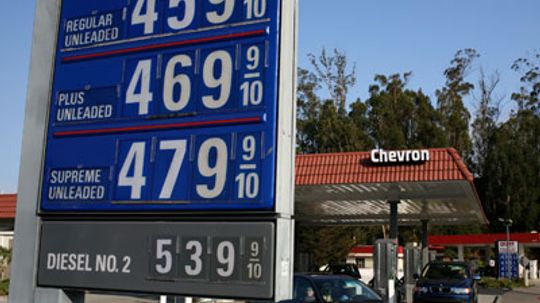Unraveling the intricate relationship between oil speculation and the surge in gas prices demands a meticulous examination. Delving into this complex phenomenon, we uncover the multifaceted factors contributing to the escalation of fuel costs.
An In-depth Analysis: Unveiling the Mechanisms Behind Oil Speculation
Embarking upon an exploration of oil speculation’s influence on gas prices necessitates comprehending its underlying mechanisms. This enigmatic practice involves financial entities engaging in futures contracts, options, and derivatives tied to crude oil. These speculative activities often occur within opaque markets that amplify price volatility.
By partaking in these ventures, speculators attempt to profit from fluctuations in oil prices without possessing any physical ownership or intent for consumption. Their actions introduce an additional layer of complexity to global energy markets as they seek gains through forecasting future price movements rather than responding solely to supply and demand dynamics.
This intricate web of transactions can lead to distorted market signals as it diverts attention away from fundamental factors such as geopolitical tensions or changes in production levels. Consequently, this diversion can exacerbate short-term price swings by magnifying market sentiment and amplifying perceived risks.
The Ripple Effect: How Oil Speculation Impacts Fuel Costs
Beyond its convoluted mechanics lies the tangible impact that oil speculation has on gasoline prices felt by consumers worldwide. As speculators engage with significant sums of capital, their collective actions have repercussions throughout various stages of petroleum value chains.
Firstly, excessive speculative activity can distort commodity futures markets directly linked to crude oil pricing benchmarks like Brent or West Texas Intermediate (WTI). Such distortions reverberate across downstream sectors responsible for refining crude into gasoline products consumed at pumps globally.
Secondly, the heightened volatility introduced by speculation can deter market participants from engaging in long-term investments and hedging strategies. This hesitancy to commit resources due to uncertain price trajectories hampers the development of new oil fields or infrastructure projects, constraining future supply capacities.
Lastly, as gas prices surge due to speculative activities, consumers face increased financial burdens that ripple through various sectors of the economy. Higher transportation costs impact businesses across industries, leading to potential inflationary pressures and reduced consumer purchasing power.
The Need for a Balanced Approach
In conclusion, comprehending how oil speculation contributes to rising gas prices necessitates navigating intricate webs of financial transactions while considering their tangible consequences. Acknowledging this interplay between speculators’ actions and fuel costs is crucial for policymakers seeking effective measures to mitigate price volatility and ensure energy security.

